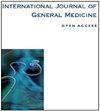Significance of Gut Microbiota on Graves’ Disease
IF 2.1
4区 医学
Q2 MEDICINE, GENERAL & INTERNAL
引用次数: 0
Abstract
Abstract: Growing research proves gut microbiota and thyroid autoimmunity are linked. Graves’ disease (GD), as an autoimmune thyroid disease (AITD), is attributed to the production of thyroid-stimulating hormone receptor (TSHR) autoantibodies that bind to the thyroid follicular endothelial cells. It is well known that genetic factors, environmental factors, and immune disorders count for much in the development of GD. So far, the pathogenesis of GD is not elucidated. Emerging research reveals that the change in gut microbiota composition and its metabolites are related to GD. The gut microbial diversity is reduced in GDs compared with healthy controls (HCs). Firmicutes and Bacteroidetes account for a large proportion at the genus level. It is found that phyla Bacteroidetes increased while phyla Firmicutes decreased in Graves’ Disease patients (GD patients). Moreover, gut microbiota modulates the immune system to produce cytokines through bacterial metabolites. This article aims to find out the relation between gut microbiota dysbiosis and the development of GD. As more molecular pathways of bacterial metabolites are revealed, targeting microbiota is expected to the treatment of GD.Keywords: Graves’ Disease, gut microbiota, autoimmunity, dysbiosis, Firmicutes, bacteroidetes
肠道微生物群对巴塞杜氏病的影响
摘要:越来越多的研究证明,肠道微生物群与甲状腺自身免疫存在联系。巴塞杜氏病(GD)作为一种自身免疫性甲状腺疾病(AITD),是由于与甲状腺滤泡内皮细胞结合的促甲状腺激素受体(TSHR)自身抗体的产生所致。众所周知,遗传因素、环境因素和免疫失调在全球甲状腺肿大的发病过程中起着重要作用。迄今为止,GD的发病机制尚未阐明。新的研究发现,肠道微生物群组成及其代谢物的变化与 GD 有关。与健康对照组(HCs)相比,GDs 的肠道微生物多样性减少。在属一级,固着菌和类杆菌占很大比例。研究发现,在巴塞杜氏病患者(GD 患者)中,类杆菌科植物增加,而真菌科植物减少。此外,肠道微生物群通过细菌代谢产物调节免疫系统以产生细胞因子。本文旨在探讨肠道微生物群失调与 GD 发病之间的关系。随着更多细菌代谢产物分子途径的揭示,以微生物群为靶点有望治疗GD:巴塞杜氏病 肠道微生物群 自身免疫 菌群失调 固着菌类 杆菌类
本文章由计算机程序翻译,如有差异,请以英文原文为准。
求助全文
约1分钟内获得全文
求助全文
来源期刊

International Journal of General Medicine
Medicine-General Medicine
自引率
0.00%
发文量
1113
审稿时长
16 weeks
期刊介绍:
The International Journal of General Medicine is an international, peer-reviewed, open access journal that focuses on general and internal medicine, pathogenesis, epidemiology, diagnosis, monitoring and treatment protocols. The journal is characterized by the rapid reporting of reviews, original research and clinical studies across all disease areas.
A key focus of the journal is the elucidation of disease processes and management protocols resulting in improved outcomes for the patient. Patient perspectives such as satisfaction, quality of life, health literacy and communication and their role in developing new healthcare programs and optimizing clinical outcomes are major areas of interest for the journal.
As of 1st April 2019, the International Journal of General Medicine will no longer consider meta-analyses for publication.
 求助内容:
求助内容: 应助结果提醒方式:
应助结果提醒方式:


